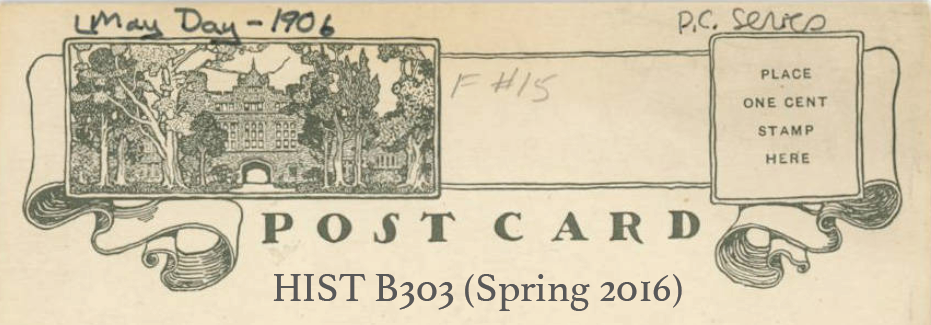The readings for this week, especially Kimberly Springer’s article on Radical Archives and the importance of current-day activist groups making sure their materials are preserved for the future, reminded me of an article I read on Buzzfeed about “preppers”, people who build their lives around being ready for a crisis that fundamentally transforms life as we currently know it. The link to the article is here, in case anyone is interested, but I’ll summarize it as well:
http://www.buzzfeed.com/annehelenpetersen/hunkering-down-with-the-survival-mom#.dfR04plAP
The article focuses on Lisa Bedford, the “Survival Mom”. Lisa and her family live what might seem like an ordinary American suburban lifestyle, but Lisa has also stocked a bunker in her home with supplies for her family to survive for five years. She also runs a website, “The Survival Mom”, which tells people things to do in their daily lives that will make them more ready for disaster. In contrast to more militaristic and offense-oriented, mainly male, survivalists, Lisa’s survival strategies are distinctly more defensive, focused on keeping one’s family alive in the face of any kind of disaster.
On first glance, an article about preppers may seem to bear little relationship to all of the articles we read this week about archives, and I agree that there are many differences, but I’m more interested in exploring the similarities, and examining what a prepper philosophy might illuminate about archival work. Springer’s article about radical archives struck me as different from the rest of the readings, and indeed the focus of many archives, because its emphasis is on preserving materials of the present for the future, as opposed to preserving materials of the past. The collection policy for the LGBT Archives at William Way Community Center, for example, said that they don’t collect born-digital material with any regularity, which indicates to me that they are not yet focused on preserving LGBT-related materials from the present, many of which are digital. In contrast, Springer focuses on suggestions for activist groups to take control over making sure their current digital materials are accessible in the future, even as technology rapidly changes and old file formats can no longer be opened. I was especially struck by her recommendation that activists back up all of their files on three different hard drives stored in three different protected locations. Although Springer is focused on the survival of records and movements, not of individual people, her concerns seem to overlap significantly with Lisa Bedford’s and other preppers’- we are too currently dependent upon the technology and conveniences of the present, and falsely act as if though they will be eternal. Therefore, if we want to preserve something, whether it be ourselves or our movements, we need to prepare for when the world inevitably changes, be it through gradual technological progressions or a massive disaster. Like Bedford, whose philosophy pushes up against an American way of life that fails to acknowledge its ephemerality, Springer’s archiving of the present pushes up against a view of archives that sees them as repositories of “history” or “the past”, a time mistakenly thought of as wholly separate from the present day. On first read it seems silly, and even paranoid, to back up all files on three separate hard drives, or to prepare a bunker to sustain your family for five years- but when forced to reckon with the fleetingness of our current ways of existence, it starts to make perfect sense.
Reading about preppers, one of my main problems was that their philosophy assumes a certain amount of affluence. While you don’t have to be rich to do what Lisa Bedford suggests on her Survival Mom blog, you do have to have enough disposable income to be able to stockpile extra supplies, and enough time to devote to setting up and maintaining a bunker. The same criticisms, I think, can be leveled at Springer’s suggestions for preservation of activists movements’ materials. While it is far less expensive, and less time consuming, to convert and back up an organization’s digital materials than it is to prepare an entire bunker, there is still an assumption that people involved in those movements have the time and resources to step back from their work, think about what is worth saving for the future, and take steps to preserve it. Traditional archives are often built around the idea that the people who created the materials didn’t find them worth archiving- it’s people who come after, whose job it is to create archives of the past, that have the time and resources to do that preservation work. I do think that Springer’s suggestions are important, and worth implementing if at all possible, but it’s also important to remember that sometimes it’s all a person, or a movement, can do just to exist in the moment.
